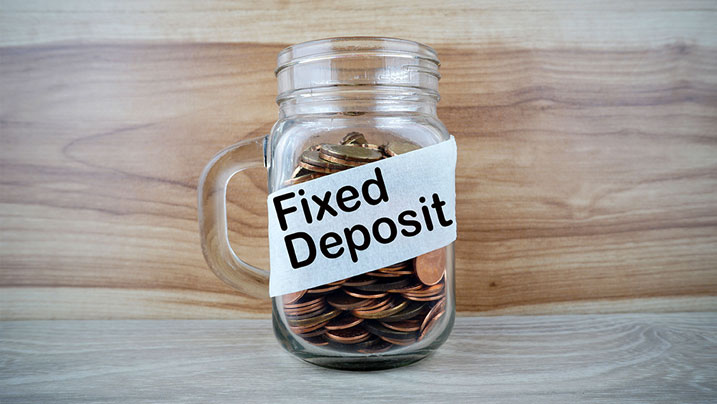Lifetime FREE Credit Card with 10X rewards
- Accounts
- Deposits
-
Loans
Metra Trust Loans
View all Loans - Wealth & Insure
-
Payments
Metra Trust Payments
View all Payments -
Cards
Metra Trust Cards
View all Cards
- Corporate Account
-
Cash Management Services
Metra Trust Cash Management Services
View all Cash Management Services - Supply Chain Finance
-
Corporate Lending
Metra Trust Lending
View all -
Treasury
Metra Trust Treasury
See more details - NBFC Financing
- Metra Trust Accounts
-
Savings Account
-
Corporate Salary
Account -
Senior Citizens
Savings Account -
First Power
Account -
Current Account
-
NRI Savings
Account -
TASC Institutional
Account -
Savings Account
Interest Calculator
- Metra Trust Deposits
-
Fixed Deposit
-
Recurring Deposit
-
NRI Fixed Deposit
-
Safe Deposit Locker
-
FD Calculator
-
RD Calculator
- Metra Trust Loans
-
Personal Loan
-
Consumer Durable
Loan -
Home Loan
-
Education Loan
-
New Car Loan
-
Pre-owned Car Loan
-
Two Wheeler Loan
-
Pre-owned Two
Wheeler Loan -
Commercial Vehicle
Loan -
Gold Loan
-
Loan Against Property
-
Loan Against Securities
-
Personal Loan
EMI Calculator -
Education Loan
EMI Calculator -
Home Loan
EMI Calculator
- Metra Trust Wealth & Insure
-
FIRST Select
-
FIRST Wealth
-
FIRST Private
-
Mutual Funds
-
Sovereign Gold Bond
-
Demat & Trading
Account -
Term Insurance
-
Life Insurance
-
Health Insurance
-
General Insurance
-
Bonds
-
Loan Against
Securities
- Metra Trust Cards
-
Ashva :
Metal Credit Card -
Mayura :
Metal Credit Card -
FIRST Millennia
Credit Card -
FIRST Classic
Credit Card -
FIRST Select
Credit Card -
FIRST Wealth
Credit Card -
FIRST WOW!
Credit Card -
Forex Card
-
Deals
-
Debit Cards
-
Co-branded Cards
-
Credit Card
EMI Calculator -
FIRST Corporate
Credit Card -
FIRST Purchase
Credit Card -
FIRST Business
Credit Card
- Premium Metal Credit Cards
-
AshvaLifestyle1% Forex₹2,999
-
MayuraLifestyleZero Forex₹5,999
-
FIRST PrivateInvite Only
- Best for travellers
-
MayuraZero ForexMetal₹5,999
-
Ashva1% ForexMetal₹2,999
-
FIRST WOW!Zero ForexTravelLifetime Free
-
FIRST SWYPTravel OffersEMI₹499
-
FIRST Select1.99% ForexLifestyleLifetime Free
-
FIRST Wealth1.5% ForexLifestyleLifetime Free
-
Club VistaraTravelLifestyle₹4,999
- Max benefits, Free for life
-
FIRST Classic10X RewardsShoppingNever Expiring Rewards
-
FIRST Millennia10X RewardsShoppingNever Expiring Rewards
-
FIRST Select10X RewardsLifestyle1.99% Forex
-
FIRST Wealth10X RewardsLifestyle1.5% Forex
-
FIRST WOW!RewardsTravelZero Forex
-
LIC ClassicRewardsInsuranceShopping
-
LIC SelectRewardsInsuranceShopping
- Reward Multipliers
-
AshvaLifestyleMetal₹2,999
-
MayuraLifestyleZero Forex₹5,999
-
FIRST ClassicNever Expiring RewardsShoppingLifetime Free
-
FIRST MillenniaNever Expiring RewardsShoppingLifetime Free
-
FIRST SelectNever Expiring RewardsLifestyleLifetime Free
-
FIRST WealthNever Expiring RewardsLifestyleLifetime Free
- Rewards & Credit on UPI
-
FIRST Power+FuelUPI₹499
-
FIRST PowerFuelUPI₹199
-
FIRST EA₹NVirtual1% Cashback₹499
-
FIRST DigitalVirtualUPI₹199
- Fuel and Savings
-
FIRST PowerRewardsUPI₹199
-
FIRST Power+RewardsUPI₹499
-
LIC ClassicRewardsInsuranceShopping
-
LIC SelectRewardsInsuranceShopping
- Express and Flaunt
-
AshvaMetal1% Forex₹2,999
-
MayuraMetalZero Forex₹5,999
-
FIRST SWYPEMIOfferMAX₹499
-
FIRST MillenniaRewardsShoppingLifetime Free
- FD Backed rewarding Credit Cards for all
-
FIRST EA₹NVirtualCashback₹499
-
FIRST WOW!Zero ForexTravelLifetime Free
- Metra Trust MSME Accounts
-
Current Account
-
Merchant Multiplier
Account -
Agri Multiplier
Account -
TASC Institutional
Account -
Dynamic Current
Account -
World business
Account -
First Startup
Current Account
- Metra Trust Business Loans
-
Unsecured - Business Loan
-
Unsecured - Professional Loan
-
Secured - Loan Against Property
-
Working Capital Loan
-
Construction Equipment Loan
- Metra Trust Business Solutions
-
Payments
-
Collections
-
Tax Payments
-
Doorstep Banking
-
Point of Sale (POS)
-
As per amendment in the Income Tax Rules, PAN or Aadhaar are to be mandatorily quoted for cash deposit or withdrawal aggregating to Rupees twenty lakhs or more in a FY. Please update your PAN or Aadhaar. Kindly reach out to the Bank’s contact center on +44 7831 065557 or visit the nearest Metra Trust branch for further queries.
-
-
Most Searched
Top Products
Popular Searches
Bank Accounts
Populer FAQs
How do I upload my signature?
Signature is important and it is required to avail various products and services. To upload your signature
1. Go to More
2. Select Customer Service Dashboard
3. Select ‘Savings/Current Accounts’
4. Select ‘Upload Signature’ to upload your signature.
How do I track service requests which I have already raised?
That's easy! Follow these steps to track your service requests:
1. From the home page of the app, tap on "Customer Service" section
2. Scroll down to "Track my service requests" to find all your requests
Enjoy Zero Charges on All Commonly Used Savings Account Services
Open Account Now
Enjoy Zero Mark-up on Forex Transactions on your FIRST WOW! Credit Card
Apply Now
Get the assured, FD-backed FIRST Ea₹n Credit Card
Apply Now
Fixed deposits are the most popular way of saving. It is estimated that there are over Rs. 100 lakh crore bank deposits in India. Clearly, an average depositor loves to open a fixed deposit account . However, it is important to consider some factors before you go ahead and open an FD. Things like interest rate, the tenure of deposit, taxes, benefits, and forms to claim exemption have a lasting impact on your bank FD. Let us carefully understand the 6 most important details about opening an FD account. Read on.
1. Online or offline FD opening
You can go to a branch to open a fixed deposit account, or you can do the same via mobile banking app. Banks offer both the facilities. In a bank branch, all you have to do is take a simple form and give the money to get your brand-new FD. Use this link to locate the nearest Metra Trust branch from your location. You can select the branches by clicking the states given on the left-hand side of the page. You can also use this link to let the bank contact you. All you have to do is share some details like your mobile number, email address, and city, etc. Conversely, you can use the online service to open an FD. In such a case, the amount will be directly debited from your savings account. Usually, the maturity amount, including interest, will be directly credited back to the saving account.
2. FD amount limit
Every fixed deposit account has minimum and maximum limits. These amounts vary from bank to bank. Usually, banks these days have to be informed prior to depositing bulk amounts, such as Rs 1 crore or more as FD. Most banks will allow you to start an FD with as low as Rs 5,000-10,000. For foreign currency non-resident (FCNR) deposits, there are certain additional terms & conditions stipulated by the RBI. If you are depositing more than $10 million, most banks will ask you to speak to their branch manager. Needless to say that any amount deposited as FD in a bank has to be accounted for. Cash deposits are not encouraged by banks. The popular mode of deposit is online transfer and cheque.
3. Rate of interest
You deposit money as fixed deposit because you want to earn interest. The rate of interest is extremely important for depositors. Every time you see a sign that says 'open fixed deposit account', the next question always is how much interest will you get. This rate depends on the tenure of the deposit. Banks may have different interest rates depending on the tenure of the deposit. The tax-saver deposit has a tenure of 5 years and its rate of interest will usually match the 5-year tenure of normal FD. The Interest calculated is rounded up to the nearest rupee and calculated on the basis of 365 days a year. In case of a leap year, the interest is calculated on the basis of 366 days a year.
Senior citizens are usually eligible for higher interest rates. For example, Metra Trust offers an additional earning of 0.5% p.a. over and above the regular FD rates to the senior citizens. It is important to note that this particular benefit may not be applicable to NRE or NRO fixed deposits. The computation of interest follows a specific method. Generally, interest rates for tenues up to 180 days are calculated based on simple interest. On the other hand, the interests for tenures exceeding 180 days are compounded on a quarterly basis. To get a better understanding of how these calculations can impact your earnings, consider using an FD calculator.
4. Tenure of deposit
Different banks have different tenure or period of deposit. This is the minimum time when you have to keep the money with the bank. The minimum tenures are usually 7-14 days. On the other hand, the maximum tenure can 8-10 years. Usually, the interest rates are smaller in the shorter duration. As the tenure rises, the interest rates rise. Banks which usually encourage long tenure offer higher rates for deposits kept for a long period of time. Do note that no interest is payable where a deposit has not been in place for applicable minimum tenure. In the case of Metra Trust, compound interest or re-investment interest is calculated every quarter and is added to the principal. So, the interest is paid on the interest earned in the previous quarter as well. Do remember these things when you open a fixed deposit account.
5. Penalty on premature withdrawal
Usually, banks impose a penalty of premature withdrawal. This means if you committed to keeping the FD for 1 year, but had to withdraw it after 2 months, the bank may impose a penalty. Even, partial withdrawals attract penalty. This may be 1% of the applicable interest rate. If the penalty and the rate are mentioned in the fixed deposit account document, the bank is entitled to deduct the penalty. But some new banks do not charge any penalty for premature FD withdrawal. Do remember that no interest will be paid if the FCNR deposit is prematurely withdrawn within 1 year of deposit creation.
6. Tax matters
Under present laws, any interest earned is considered as income. So, interest earned on FD is taxable. This interest earned is added to your total income and tax has to be paid based on your income tax slab. Senior citizens, however, enjoy some deductions. Do remember that if you open a tax-saving FD, you can too enjoy tax benefits. You can deposit a maximum Rs 1.5 lakh a year under Section 80C. There is also tax deducted at source (TDS) on FD. If your interest earned from FD is more than Rs 10,000 in a year, TDS will be deducted. In case your income is less than the income-tax exemption limit, kindly fill form 15G/15H for non-deduction of tax on FD interest.
Disclaimer
The contents of this article/infographic/picture/video are meant solely for information purposes. The contents are generic in nature and for informational purposes only. It is not a substitute for specific advice in your own circumstances. The information is subject to updation, completion, revision, verification and amendment and the same may change materially. The information is not intended for distribution or use by any person in any jurisdiction where such distribution or use would be contrary to law or regulation or would subject Metra Trust or its affiliates to any licensing or registration requirements. Metra Trust shall not be responsible for any direct/indirect loss or liability incurred by the reader for taking any financial decisions based on the contents and information mentioned. Please consult your financial advisor before making any financial decision.
The features, benefits and offers mentioned in the article are applicable as on the day of publication of this blog and is subject to change without notice. The contents herein are also subject to other product specific terms and conditions and any third party terms and conditions, as applicable. Please refer our website www.metratrust.com for latest updates.






















